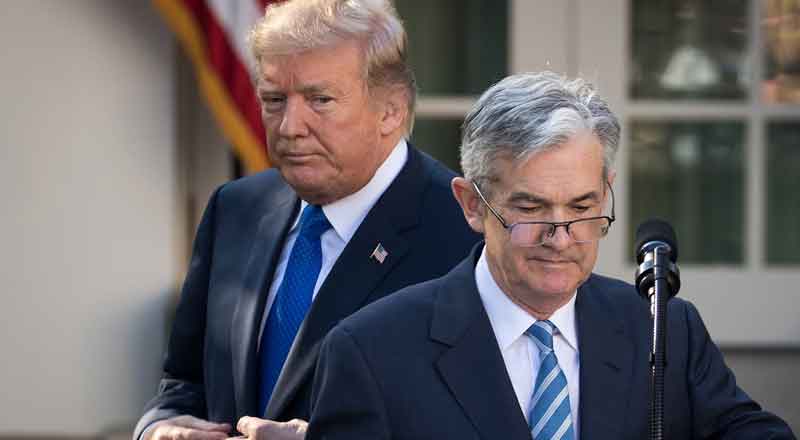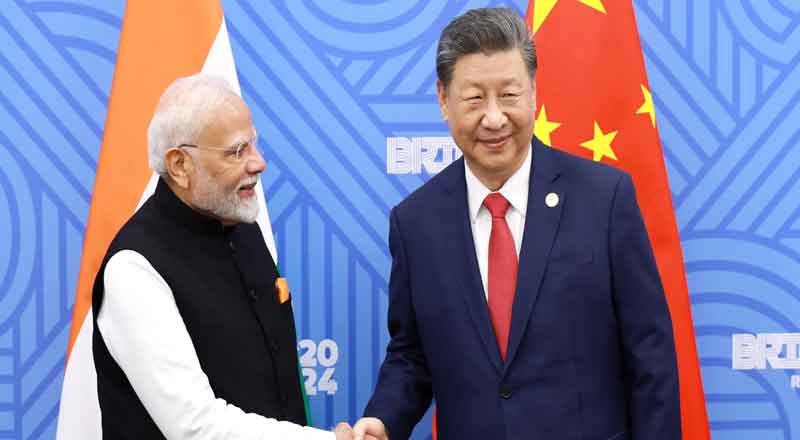Jerome Powell, the Federal Reserve Chair, has remained a resilient and steady leader in the U.S. economic landscape, having been appointed initially by Donald Trump in 2017 and reappointed by Joe Biden in 2021. Throughout his tenure, Powell has faced substantial criticism from Trump, particularly when Federal Reserve policies did not align with Trump’s economic goals. Despite the frequent tension, Powell has remained resolute, stating emphatically that he would not resign if a re-elected Trump asked him to do so before the end of his term in 2026. The interaction between the two underscores broader questions regarding the independence of the Federal Reserve and its essential role in stabilizing the economy.
Background on the Trump-Powell Relationship
Jerome Powell, a Republican, was appointed by Trump in 2017, and his leadership has since been a focal point for Trump’s critiques regarding Federal Reserve policies. Trump’s dissatisfaction grew especially in 2018 when Powell raised interest rates, a move that conflicted with Trump’s economic priorities. Trump went so far as to label Powell an “enemy” due to his hesitance to cut rates aggressively during periods of economic growth and rising inflation concerns. Trump’s frustrations culminated in public statements suggesting that he held the authority to remove Powell from his post, although no president has ever attempted such an action.
The question of whether a president can legally remove a sitting Federal Reserve chair is somewhat of a gray area. According to experts at the Brookings Institution, no statute explicitly authorizes a president to dismiss a Federal Reserve chair, underscoring the importance of the central bank’s independence from political interference. While Trump previously voiced the opinion that he should have a say in interest rate policy, the Federal Reserve’s independence is a hallmark of its credibility, emphasizing that its decisions should be based on economic data rather than political agendas.
Powell’s Recent Comments: Maintaining the Fed’s Independence
Following a Federal Reserve decision to reduce interest rates by a quarter percentage point, Powell made it clear during a press conference that he would not resign if Trump were to request his departure. Powell’s assertion was firm: “No,” he responded when asked if he’d step down under presidential pressure. Furthermore, he noted that neither he nor other Federal Reserve board members could be demoted or removed at will, emphasizing that the law does not permit such actions.
Powell also underscored that the recent U.S. presidential election would not impact the Federal Reserve’s immediate policy decisions. Instead, the central bank would continue to prioritize goals of maximum employment and price stability. Despite political pressures, Powell reaffirmed his commitment to uphold the Federal Reserve’s mandate, asserting that any future fiscal policy changes would be assessed objectively, based on their economic impact.
Economic Context and Recent Fed Decisions
The Federal Reserve’s recent actions come amid a mixed economic outlook. During the third quarter, the U.S. economy grew at a 2.8% annual rate, supported by consumer spending. Meanwhile, the labor market, though cooling, remains resilient. October saw a modest gain of 12,000 jobs, with the labor market impacted by extreme weather and a major strike, suggesting caution in the Fed’s future decisions.
Despite significant progress in controlling inflation, Powell noted that the economic path remains uncertain. Inflation, measured by the Fed’s preferred gauge, eased to 2.1% in September, close to the central bank’s 2% goal. Still, signs of uneven progress persist, with a recent increase in underlying inflation adding complexity to the central bank’s policy considerations.
With interest rates now in a range of 4.5% to 4.75%, Powell and his colleagues see their policy adjustments as a measure to sustain economic momentum while aiming for price stability. The Federal Open Market Committee (FOMC) issued a statement highlighting balanced risks to employment and inflation, underscoring the Fed’s cautious stance amid evolving economic signals.
Implications of Trump’s Re-Election and Potential Policy Tensions
Trump’s re-election introduces potential challenges to the Federal Reserve’s approach, especially if the administration enacts policies that could increase inflationary pressures, such as tariffs or additional tax cuts. During his first term, Trump advocated for rate cuts that would stimulate growth but potentially increase long-term inflation. If these policies re-emerge, the Federal Reserve could be compelled to raise interest rates, creating potential friction between Trump’s growth-focused goals and the Fed’s inflation-control mandate.
Powell noted that it is too early to predict the specific impacts of new fiscal policies, emphasizing that the Federal Reserve’s response would hinge on economic data and its statutory objectives. Treasury yields and bond markets, both sensitive to government policy changes, have shown volatility amid election results and policy projections, with longer-term rates trending higher.
The Federal Reserve Chair’s steadfast commitment to independence amid political pressures reinforces the institution’s role as a stabilizing force in U.S. economic policy. Powell’s clear stance — that he would not resign if Trump asked — underscores a broader theme in American governance: the independence of key institutions from political influence. This principle remains crucial to the Federal Reserve’s credibility, especially during times of economic uncertainty.
As Powell and the Federal Reserve navigate economic fluctuations and potential policy shifts from a re-elected Trump administration, the central bank’s independence will be pivotal in ensuring balanced and data-driven decision-making. While Powell’s tenure has been marked by occasional clashes with Trump, his resolve to maintain an independent stance aligns with the Federal Reserve’s enduring role: to make economically sound decisions that prioritize long-term stability over short-term political gains.
(With inputs from agencies)





